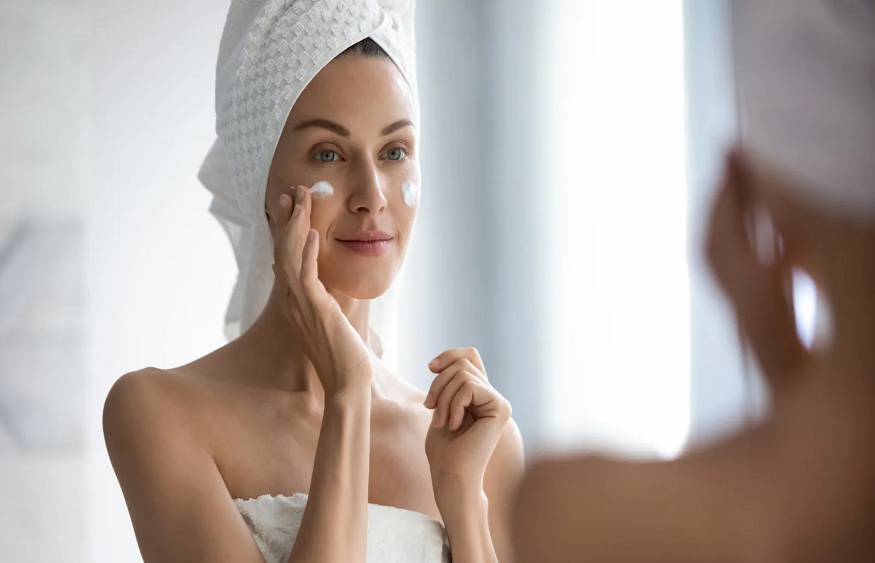How to take care of your skin on a daily basis?
TIPS FOR HEALTHY SKIN
1. Understand the impact of your environment on the bacterial flora of your skin
Before even adopting good habits, it is important to take a look at the environment around you. Your face is in contact with multiple external elements. Several factors beyond your control such as climatic aggressions, seasons, pollution, air conditioning, and much more can harm. For your skin to look healthy, you need to make sure it’s free from harmful components and a host of bacteria. To achieve this, you will first need to be aware of your skin type , then establish a beauty routine that will allow you to take care of your skin and get rid of the unwanted agents that land on your face during the day .
Pillowcases, towels and washcloths, as well as makeup brushes and sponges are all things that can harm the bacterial flora in your skin . We recommend a weekly cleaning of all beauty tools that come into contact with your face so as not to spread dead cells and impurities on your face !
2. Identify your skin type
There are many skin types and yours may even change over time. To take good care of your skin and to choose the right products, you must first be able to target your real needs. Evaluating your epidermis will allow you to become aware of its specific characteristics. To do this, you must be on the lookout for its signs of imbalance. These signs can be: the feeling of dryness or sensitivity, the excessive secretion of sebum , the appearance of pimples or redness, lack of tone or the decrease in radiance of your skin.
Damaged skin : Your skin lacks tone and elasticity . Your epidermis has multiple imperfections, such as redness, cavities, scars and an acne tendency. Your pores are usually dilated. Your face is prone to wrinkles and has a rougher texture.
Dehydrated skin : Your skin is not very supple. It secretes little sebum to ensure its protection. It is therefore sensitive to the sun and can cause a feeling of tightness. The pores in the nose area are not dilated.
Sensitive skin : Sensitive skin reacts strongly to all external aggressions, such as cold, dust or sun. She may present with redness, signs of inflammation and discomfort.
Oily skin : This type of skin is often oily on the sides of the nose, forehead and chin, in short the T-zone. This excess sebum makes it prone to imperfections such as pimples, blackheads, etc. The pores are dilated.
Combination skin : Your epidermis is a mixture of dry and oily skin. Indeed, the skin in the area of your cheeks is dry and that of the area of your chin, nose and forehead is oily. Eventually, your pores in the nose area are dilated.
Normal skin : So-called “normal” skin has no problem with dryness or excess sebum. It is possible that it changes according to the seasons.
Products adapted to your skin type combined with a daily routine are the solution to obtain all the necessary nutrients. If your skin is not in the “normal skin” category, you may not be using the right products. Moreover, as the epidermis is constantly evolving, it is likely to experience changes at any time. It is therefore not surprising to learn that you will have to adjust your routine and adapt your products according to seasonal variations, for example. Although the descriptions mentioned above can help you identify your skin type, it is best to have yourself assessed by a professional. During a free consultation at Option Dermasanté, our beauticianscan examine your skin and recommend products that will benefit you.
3. Adopt a facial care routine at home
To help your skin stay healthy , there are three basic things to consider. The first is to use proper water in your facial care routine. Using tap water during your beauty routine can be harmful, as it often contains limescale. The latter is likely to dry out the epidermis and cause itching. It is therefore preferable to apply a cellular water on your face after cleaning it with tap water to ensure its hydration and give it a radiant effect. In addition, to avoid affecting the overall balance of your skin, it is recommended to use a micellar water when removing make-up and cleansing your face.

